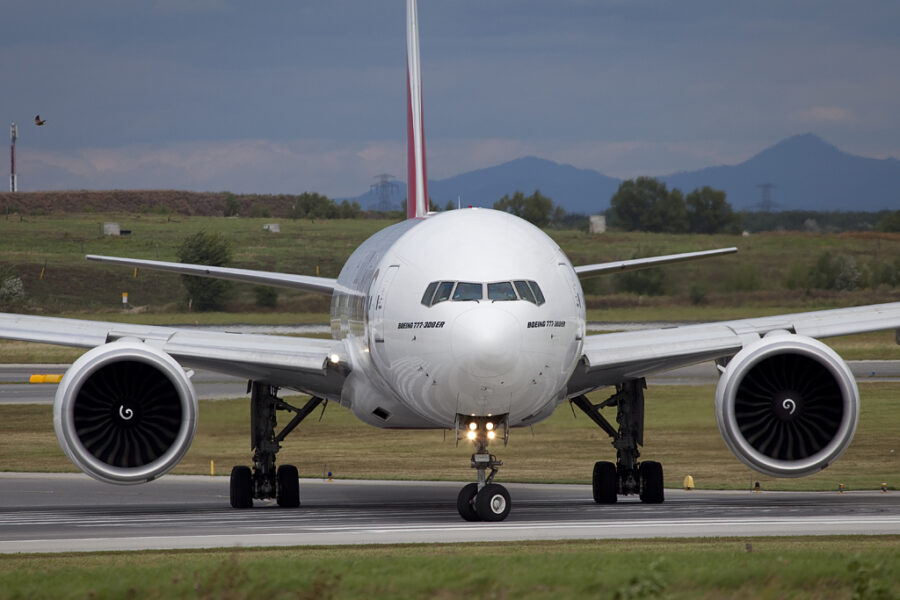FAA Proposes New Safety Directives for Boeing 777 and 787 Jets

The Federal Aviation Administration (FAA) has issued two proposed airworthiness directives targeting the Boeing 787 Dreamliner and Boeing 777 fleets, citing concerns over flight control and hydraulic system safety. The proposed rules would affect 165 Boeing 787s and 340 Boeing 777s currently registered in the United States.
Boeing 787: Altitude Control Fixes
The FAA’s directive for the Boeing 787 requires airlines to replace faulty Mode Control Panels (MCPs) after reports of uncommanded altitude changes. The component, manufactured by Honeywell, has been found to malfunction due to software errors and electrical power irregularities, potentially causing unintended flight level adjustments.
The proposal applies to all 787-8, 787-9, and 787-10 models and aims to prevent incidents that could lead to controlled flight into terrain (CFIT) or airspace conflicts. The FAA is instructing operators to follow Boeing’s April 2025 service bulletin to replace affected MCPs. The estimated cost of compliance is $405,000 per aircraft, although Honeywell may cover part of the expense under warranty. Public comments on the proposed rule will be accepted for 45 days after November 17.
Boeing 777: Landing Gear Pump Replacement
A separate directive affects Boeing 777 aircraft, following an incident involving a wheel well fire traced to an overheating Alternating Current Motor Pump (ACMP) in the landing gear system. Investigators determined that a missing lock washer and nut in the electrical load control unit allowed excess current to reach the pump, causing overheating and hydraulic fluid leakage.
In response, Boeing issued a service bulletin on September 11, 2025, advising operators to replace affected ACMPs with modified versions featuring fusible links designed to prevent overheating. The FAA’s proposed directive would make those replacements mandatory to reduce the risk of future fires and improve safety in high-heat operating environments.
Safety and Industry Implications
These FAA proposals underscore the agency’s ongoing commitment to proactive maintenance oversight and aviation safety enhancement amid increasing scrutiny of aircraft systems. Airlines operating Boeing 777 and 787 fleets will be required to implement repairs promptly to maintain compliance and avoid potential safety risks.
While the financial impact of these updates is considerable, both directives aim to safeguard passengers, crews, and operations from avoidable mechanical and electrical failures. The FAA’s dual initiatives serve as a reminder of the importance of continuous system monitoring and timely upgrades in modern commercial aviation.
Both proposals remain open for public comment before final approval, allowing airlines, manufacturers, and aviation stakeholders to provide input on the implementation process.
Related News: https://airguide.info/?s=FAA, https://airguide.info/?s=Boeing+777, https://airguide.info/?s=FAAboeing+767, https://airguide.info/category/air-travel-business/travel-health-security/
Sources: AirGuide Business airguide.info, bing.com, faa.gov, aviationa2z.com
